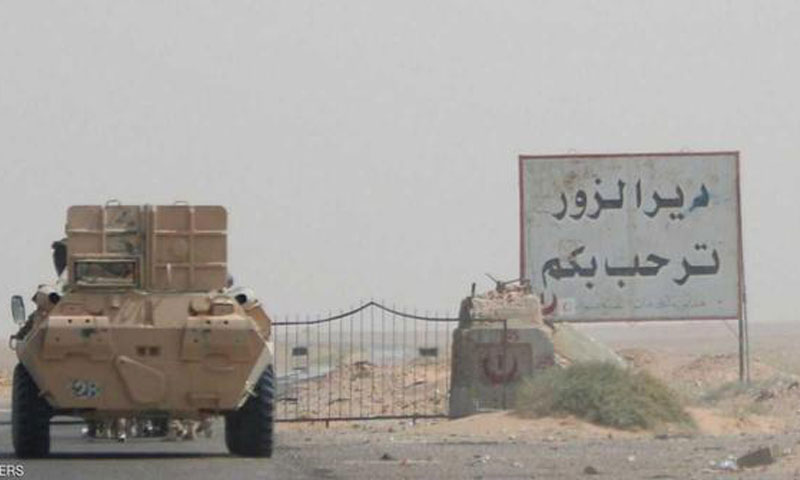
Working to Bridge the Gap, to Enab Baladi: Civil Council Head
Three Councils Present Themselves to Mange Deir ez-Zor Governorate

Deir ez-Zor, Syria— Three administrative variations started to appear in the governorate, in eastern Syria, as a result for the changing map of control and the international support shown to certain parties, which provided them with an additional force within the acknowledged power balance and a push forward in the administrative context. Three councils would like to represent the governorate: The Civil Council supported by the Syrian Democratic Forces (SDF), the council supported by the Syrian regime and the council supported by the Syrian Interim Government, based abroad.
The geographical classification of forces, totally clear in Deir ez-Zor, “is an evidence, which can’t be doubted, about the nature of the components that will share the influence and shape the region’s new face,” Bara al-Taha, a military analyst in Deir ez-Zor, said.
To Enab Baladi, al-Taha said that SDF, backed by the internationally supported Syrian Democratic Council, the Syrian regime’s forces and their Russian supported allies “would lead the administrative formulas and impose their own laws, being the only forces on the ground.” However, activists from the governorate refuse to admit that the happenings on the ground had ended the competition.
“We may reach, as in other governorates, a state of integration between some activists abroad and councils at home, but the conflict is settled for those within the borders, who are closer to the local force,” he said.
At its headquarters, based in the Turkish city of Gaziantep, the Syrian Interim Government’s Ministry of Local Administration had elected a council for Deir ez-Zor with female representatives on August 10. Twenty-eight members of the governorate’s councils out of 41 attended the election.
Twelve members won the elections of the council’s executive office, including the council’s head and his deputy, to serve the governorate’s people inside Syria and abroad.
In a former interview with Enab Baladi, Muzhar Sharbaji, a member of the election commission, said that he might create a database of Deir ez-Zor’s people living in Turkey and conduct studies tackling education and other projects inside Syria.
On September 24, the leaders and the sheiks of Deir ez-Zor ‘s tribes have established the governorate’s ‘Civil Council,’ sponsored by the governorate’s military council and SDF, after a meeting in the town of Abu Khashab in the northwest of the governorate.
According to the establishment statement, the Civil Council, with its temporary headquarters in the town of al-Jazara, took the responsibility for bringing the displaced people back to the governorate and for enhancing the strong bond between them based on cooperation, solidarity, and productivity seeking to build a new stable life in Deir ez-Zor.
The Syrian regime runs the areas under its control in Deir ez-Zor, through its service institutions, which activists describe as lacking the basic needed services.
Deir ez-Zor’s Civil Council has a New Administrative Formula
| The Council consists of 14 committees: Women, Justice, Reconciliation, Youth and Sports, Organizations and Humanitarian Affairs, Services and Municipalities, Education, Archaeology and Culture, Agriculture and Livestock, Finance, Internal Security, Protection, Families of Martyrs and the Organizational Committee. |
“We are an administrative formation trying to serve its people during this sensitive and dangerous stage, in which all have given up on us,” Ghassan Yousef, head of the Civil Council in Deir ez-Zor, says to Enab Baladi. “The gap inside the country demanded the formation of certain bodies to bridge it and help the people continue their lives.”
“Most of the councils, formed abroad, don’t know the reality of the situation,” according to Yousef, who considers that his council brings all the national and local variations together. “Despite the council’s limited resources, we extend our hands to all, and there is no need to dispute for the formation of the councils.”
The Head of the Council spoke about the need to help the people overcome the current difficulties, stressing “the need to combine the efforts of all the components.” He called for “restoring the people’s confidence in civil administrations and helping them to build their lives through the provision of basic services, especially health, education, electricity and water.”
The joint presidency of the Syrian Democratic Council and Deir ez-Zor’s Military Council has supported the Civil Council. Both stressed that they will work hard to protect the council and to hand it all the regions controlled by SDF, so it would take care of the people’s affairs.
“A Difficult Mission”
No one can deny the difficulty of managing the governorate under the current conditions, regardless of the party that will lead the services process.
“Joining the efforts and uniting the people is a difficult mission and requires a lot of hard work,” Sayyid al-Sayyed, Head of the Justice Committee in the Civil Council, said to Enab Baladi. “The interest of the citizen must be the compass that guides everyone.”
About the level of destruction caused by war, al-Sayyed says “It goes beyond imagination and forces us to do whatever we can to help the people,” adding that “destruction and thefts have long plagued legal and judicial institutions, which have caused many problems and disputes that might continue for many years to come.”
According to the Head of the Justice Committee, the committees formed under the Civil Council, aim to reduce the damage “through our expertise to rebuild our governorate.” Negating the Council’s having any other goal, he said “We will work independently and freely, under the umbrella of the Syrian Democratic Council, with full autonomy.”
Al-Sayyed, commenting that Deir ez-Zor’s people should govern and manage their governorate, says “The Council’s door is open to any person at any time, as long as he wishes to work to develop the situation of the people in Deir ez-Zor.”
While working, a number of the Council’s members complain about a lack of financial resources and the needed tools, concerned about extremism founded by the Islamic State in Syria and stressed the necessity of conducting democratic elections to form civil councils. About this, al-Sayyed said “People have the right to feel marginalized after the monopoly of the country’s decisions by certain groups. We are with democracy, and we will accept people’s decisions; we are part of them.”
Baker Sauod, a 24-year-old activist from Deir ez-Zor, based in Istanbul, said that the province would be divided into two sections. Each section will be run in a civil manner according to the force controlling it. In an interview with Enab Baladi, he said that the regime will continue to operate in the areas under its control, and the areas under SDF will be turned to the administration of the Civil Council.
According to activists from the governorate, the chances of the council formed by the government are weak, especially as the opposition does not have the power on the ground, which makes the competition limited to the two former councils.
The people of the governorate have a fundamental question, for how long this process of dividing the control will go on.
According to Baker, this is decided by the international support offered to SDF. He says that the U.S. forces are shelling all those who threaten SDF, which has been clear upon its control of Koniko and Al-Jafra gas fields.
Some of the governorate’s people believe that the United States might have been supporting the project of the Syrian Democratic Council in the entire of Al-Jazira region, supporting it as an administrative and organizational structure. Others believe that all the issues in the region are open under the developments it’s witnessing today.
if you think the article contain wrong information or you have additional details Send Correction
النسخة العربية من المقال
-
Follow us :
Most viewed
- Hidden aspects of Iranian consulate building targeted in Damascus
- Reduction of Fifth Corps: Pressure on Moscow reflected in Syria
- AANES receives first batch of Syrian refugees deported from Iraq
- Syrian coast and Golan join the "Three Regions Document"
- Five injured in suicide drone attack by regime forces west of Aleppo

















 A
A
A
A
A
A



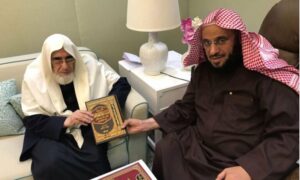
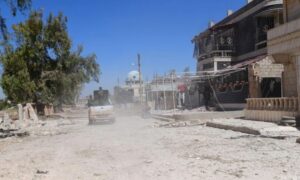
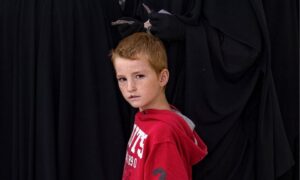
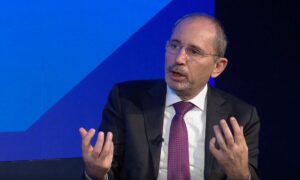
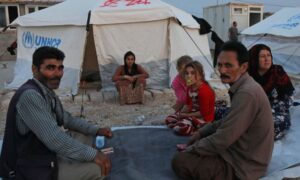
 More Politics
More Politics